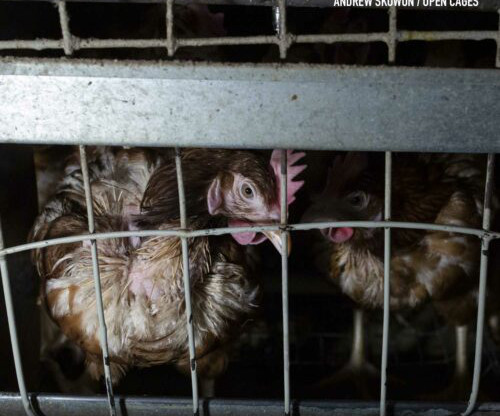CBS News Runs Series on Factory Farms
Critter News
FEBRUARY 20, 2010
Katie Couric did a story on the use of antibiotics on factory farms in the US and the potential harm to humans. According to her, there was a message that removing the use of antibiotics would actually improve these poor animals' welfare. This occurred a week or so ago. A friend of mine said it was quite good.





































Let's personalize your content